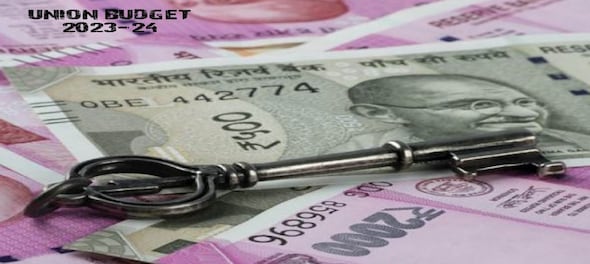
With around a week to the interim budget, industry experts from various sectors anticipate inclusive development, infrastructural expansion, digital payments, green projects, and self-reliance will continue to get a push. Exporters and industries seek more measures to increase India’s global competitiveness and are calling it the manufacturing moment.
Bharat Dhawan, Managing Partner, Mazars in India, predicts that capital expenditure will continue to remain strong, with further allocations in the construction of roads and railways taking center stage.
Dhawan says, “High hopes are pinned towards green hydrogen in the energy sector, as well as for championing the production of EVs in automotive. The agricultural sector can also expect sops in view of current climate and inflationary pressures, and the government may take steps to cut domestic prices and boost insurance.”
Dhiraj Relli, MD & CEO, HDFC Securities reckons that the major policy reforms and announcements may get postponed to the regular budget due in June/July 2024, even as there would be some buildup of expectations ahead of the vote on account.
Relli emphasised that the capex and fiscal consolidation paths followed in the vote on account would be closely monitored given their impact on growth and interest rates. The government will have to maintain a balance between the capex and fiscal consolidation, as a higher capex could postpone the journey of the latter.
“The government is likely to stay on the fiscal course-correction glide path in the interim budget for FY25, shunning populist spending or incentives ahead of the summer general election,” said Relli.
Some SOPs for women and youth could be announced with minimal impact on the deficit after SOPs for the poor and farmers have been announced time and again. Relli expects the capital markets to get a little excited by the vote of accounts, however, the market may wait for the regular budget and the general election outcome before getting very bullish.
Sujit Bangar, CEO at Tax Buddy, pointed out that the government has been trying to simplify tax compliance as two tax regimes have created confusion amongst taxpayers. The upcoming budget should amalgamate into one tax regime through the overall rationalisation of tax rates.
Amrit Acharya, CEO and co-founder at Zetwerk, called the present day the manufacturing moment of India, which needs to be seized with a vision of the next 25 years.
The economy must look beyond 'Make in India' and forge a self-reliant ecosystem through R&D investment, cutting-edge clean technologies, and robust skilling programs. Acharya has suggested that the government must bridge the gap between established manufacturers and new-age companies through a level playing field.
India must bridge the gap between established manufacturers and new-age companies through a level playing field to explore its full potential, Acharya added.
Akihiro Ueda, CEO of Terra Charge, looked optimistic that the government will continue to support the EV ecosystem through favorable policies, subsidies, and infrastructure development. This will also prove significant for India’s environmental goals. The EV industry has received a significant boost through initiatives like the production-linked incentives (PLI) scheme.
Akash Sinha, CEO and Co-Founder, Cashfree Payments, stressed that the government should push for initiatives that aim to focus on increasing penetration of digital payments in regions in tier-2 cities and beyond.
“There is a call for the implementation of a standardized KYC framework across all financial services, aiming to enhance efficiency and promote financial inclusion in a secure way. Overall, the budget should also announce some provisions to ease the financial burden on fintechs and provide tax-saving benefits to startups in the sector,” said Sinha.
MobiKwik’s co-founder and CEO, Bipin Preet Singh, suggests that we could foresee incentives for fintechs that provide lending solutions beyond Tier 2 and Tier 3 cities.
Singh believes that the upcoming Union Budget will further drive financial inclusion by increasing the credit corpus for MSMEs, which includes extending support to microfinance institutions (MFIs) and small finance banks (SFBs).
“We expect the budget to provide incentives that encourage fintechs to drive further innovations in other aspects of banking like credit, investments, savings, and advisory. We also expect digital lending, especially small-ticket loans, to grow significantly with the proper checks and balances in place to protect borrowers,” said Singh.
Vikram Agarwal, Managing Director, Greendot Health Foods Pvt. Ltd, the company that owns the popular Nachos brand, has requested the government allocate funds for export incentive schemes in the food sector, coupled with subsidies to facilitate overseas participation in major food shows.
Apparel Export Industry
The Apparel Export Promotion Council (AEPC) has pitched to enhance the competitiveness of RMG exports in India. Mithileshwar Thakur, Secretary General, AEPC, said, “India is on the cusp of being the fastest-growing economy, and trimmings and embellishments under the Import of Goods at Concessional Rates of Duty Rules (IGCR Rules) will help the sector.”
The operations involved in the garment export trade require various kinds of quality trimmings and embellishments (tags, labels, stickers, belts, buttons, linings, inter-linings, etc.) to ensure the desired functionality and aesthetics of garments in the global market. In order to maintain their brand image, foreign buyers insist on maintaining consistency and quality and avoiding the use of counterfeits. APEC has also requested duty exemption for the following items: draw cord, elastic band or tape, metal tabor stopper or clip, tape, velcro tape, leather badge, die set, D ring, etc.
Also, the sector should be allowed a minimum waste at 10% under the IGCR Rules for import of trimmings and accessories by issuing an appropriate notification. “Apart from this, an increase in the rates to 5% for All Exporters under the Interest Equalization Scheme will boost the sector. The industry has requested the government to consider tax concessions to apparel manufacturers adopting ESG and other international quality standards and compliances,” Thakur added.



